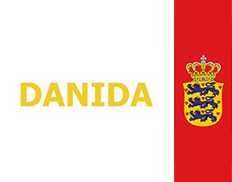Share
Print

Description:
Background
In 2014, the state electricity company, PLN’s, electricity sales were 198,601 GWh. The household sector consumed 84,086 GWh, equivalent to 42.34% of total electricity consumption. The household sector is thus the highest electricity consumer compared to all other sectors. Most of the electricity production in 2014 was from coal (48%), followed by oil (15%), gas (28%), hydropower (6%), and geothermal power (3%).
In line with population and economic growth, electricity demand continues to increase and is projected to be 2.5 times higher or approximately 464,400 GWh in 2025. In this projection, the household sector is still predicted to dominate electricity use with consumption of 190,700 GWh. Such high demand requires sufficient supply. If production cannot meet demand, a crisis will take place as experienced by some parts of Indonesia nowadays. According to the Directorate General of Electricity of Ministry of Energy and Mineral Resources, there are nine areas currently in electricity crisis. By 2020, Indonesia plans to increase the capacity of power plants to 85 GW (35 GW new power capacity) as stated in the National Mid-Term Development Plan 2015-2019. This programme will require huge investments, in order to maintain financial capability, PLN will build 10 GW power plants and the remaining 25 GW will be offered to independent power producers.
On the demand side, GoI has a national target to decrease the energy intensity by 1% per year. It is predicted that in 2025, the national energy consumption will be 17% more efficient compared to the business as usual scenario.
Energy conservation in the household sector in an important means to reducing electricity demand which will also reduce the need to have additional electricity supply. Directorte General of New Renewable Energy and Energy Conservation of Ministry of Energy and Mineral Resources identifies the potential of energy saving in household sector to be 15 - 30%. The energy saving measures in the household sector may include architectural design approach, system optimization, energy efficient appliances, capacity building and improvement of awareness leading to change of behaviour. Continuous efforts are necessary to habituate electricity saving practice. Energy saving behaviour needs to be built in childhood, for it to become a habit.
The energy agency of Central Java (Dinas ESDM CJ) proposes to implement awareness raising and capacity building on EE/EC in the education sector in Central Java. It is expected that ten senior high schools in three cities in Central Java will join the programme. In order to motivate the students and teachers in implementing energy saving behaviour, energy saving competitions will be carried out between schools.
Objective:
The objective of the consultancy is to conduct an energy conservation awareness raising and capacity building programme, incorporating an energy saving competition, in ten different high schools in the cities of Semarang, Solo and Magelang.
Output:
Output 1
Ten senior high schools in Semarang, Solo, and Magelang selected. Each school will be required to select ten students and one teacher. The students will be appointed as Energy Saving Ambassadors (ESA) and the teachers will be appointed as Energy Managers (EM). The ESAs will work as a team to lead the implementation of the energy saving programme in their respective schools and to encourage the other students to implement energy saving measures in their respective homes.
Output 2
Awareness raising and capacity building programme on energy efficiency and energy conservation for EMs and ESAs has been conducted. The programme should include, but not be limited to: a). Programme launch and half-day workshop for teachers. b). Two full-day trainings for each participating school - capacity building for ESAs and EMs. The training will be conducted in each city (i.e. six full day events).
Output 3
Energy saving competitions have been completed. At the end of the competition period, there will be a programme closing with prize giving. The competitions will include: a). Energy savings at school. Three types of competition: Champion EM, champion ESA team and champion school. b). Energy saving at home. Type of competition: Champion home.
Scope of the contract:
The assignment will require a maximum of 74 man-days over a period of five calendar months. The team shall consist of a team national consultants consisting of a training/education specialist who has proven experience in conducting capacity building programmes for schools, an energy efficiency and conservation expert who has proven experience preparing and conducting EE and EC programmes for students, and a trainer. The working language will be english but the consultant should be able to provide Indonesian language skills within the team.
Budget:
The total maximum all-inclusive contract sum which covers both consultant fee and reimbursable expenses is DKK 350.000. The consultant should set aside DKK 40.000 in the reimbursable budget for competition prizes.
Timing:
The work is expected to be carried out between 1 November 2017 and 31 March 2018
Deadline for applications: 26 September 2016, at 16:00 Danish time
Contact the Programme Officer at the contact point below to receive the Request for Proposal. Applications not using the standard form may be rejected. Proposals received after the deadline shall be rejected.
Contact point:
Name of Programme Officer: Jacoc Stensdal Hansen
E-mail address, Programme Officer: rdetender@um.dk
Telephone of Programme Officer: +62 21576147
Criteria for award of Contract:
A minimum of three and a maximum of five applicants with references best suited for this assignment will be invited to submit a tender. The consultant company should have recent experience in energy efficiency and energy conservation awareness raising in the high-school education sector.
